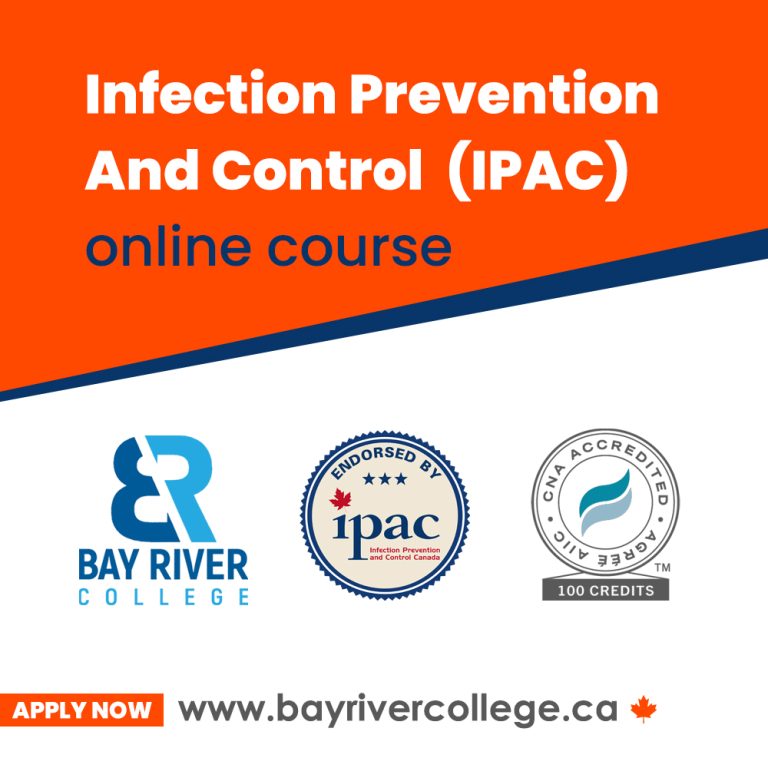The COVID-19 pandemic has led to an unprecedented challenge to Infection Prevention and Control, a devastating loss to people’s lives across the world. As of March 18, 2021, 922,000 people have been diagnosed in Canada, and 121 million people have been diagnosed in the world. The pandemic has also caused dramatic economic and social disruption. Approximately 1.65 billion global workforces are at risk of losing their income, while millions of people are at risk of falling into extreme poverty. Also, the number of undernourished people is currently estimated at nearly 690 million (World Health Organization, 2020). To date, there are more than 1 million deaths due to the pandemic. These grim numbers reflect enormous challenges for everyone. Much uncertainty and tension continue to grow for individuals. The COVID-19 pandemic poses complex potential risks for the healthcare environment. However, it is also a stark reminder of the critical importance of infection control.
What is Infection Prevention and Control (IPAC)?
According to World Health Organization (2020), infection prevention and control (IPC) is a practical, evidence-based approach that prevents patients and health workers from being harmed by avoidable infection and as a result of antimicrobial resistance.
Why is Infection Prevention and Control (IPAC) Important?
Failure to appropriately control and prevent infections will increase the spread of disease, decrease the quality of care, and ultimately cause a healthcare burden. Therefore, practicing infection prevention and control (IPAC) at home, at work, and most importantly, in all health care settings is critical. By practicing infection control, healthcare professionals will serve to deliver high-quality care, manage to mitigate the risks of the potential spread of infections and diseases, and ensure maintain a safe healthcare environment for everyone. Besides, it is essential for healthcare professionals to take Infection Prevention and Control courses offered by IPAC Canada to possess principles of infection prevention.
Who is IPAC Canada?
Infection Prevention and Control Canada (known as IPAC Canada) is a non-profit professional association, incorporated in 1976 under the Canadian Corporate Act. IPAC Canada is governed by a Board of Infection Prevention and Control Professionals and a Public Representative. IPAC Canada provides education for people who are professionally or occupationally engaged in the prevention and control of infection activities. IPAC Canada’s mission is to inspire, nature, and advance a culture committed to infection prevention and control.
How to prevent the spread of infections?
1. Hand Hygiene
Hand hygiene is considered one of the best defenses against the spread of infection. Proper hand hygiene practices should include the use of alcohol-based hand sanitizers and antimicrobial soap to wash your hands for at least 20 seconds. It is strongly recommended for an individual to practice hand hygiene before eating, after coughing, sneezing, before and after providing care to patients, entering, leaving the hospital, and or other health care settings.
2. Use of Personal Protective Equipment (PPE)
In areas with community transmission of diseases, healthcare practitioners and frontline healthcare workers should fully equip with personal protective equipment (PPE) when caring for patients. The proper use of PPE can significantly help frontline workers to minimize exposure to infections and hazards. The PPE should include medical masks, gloves, foot, and eye protection, protective hearing devices, respirators, and full bodysuits.
3. Equipment Cleaning
Cleaning equipment is essential in preventing the transmission of infections. In Alberta, heat-tolerant critical devices must be steam-sterilized inactivates for enveloped viruses, vegetative bacteria, fungi, non-enveloped viruses, spores, protozoa with cysts, and mycobacteria. The reprocessing methods that are currently available in Canada include steam sterilization, hydrogen peroxide gas plasma, ethylene oxide, vaporized hydrogen peroxide, liquid paracetic acid, and hydrogen peroxide gas (Alberta Health Services, 2023).
4. Education and Training
The outbreak of the COVID-19 pandemic has highlighted the importance for all health care workers to learn and apply infection prevention and control (IPAC) principles and practices across healthcare sectors. The need to educate healthcare workers to equip with comprehensive knowledge and appropriate skills to manage and prevent infections is inevitable. Infection Prevention and Control (IPAC) Canada has outlined competencies for health care providers and this is applicable for all health care sectors across Canada.
If you are interested to learn more about infection control, here is an opportunity for you! Bay River College is now offering the Infection Prevention and Control program, endorsed by IPAC Canada. This program is a 16-week online program, featuring to equip frontline healthcare workers and new IPAC practitioners with the practical skills and conceptual knowledge to succeed in their careers.

